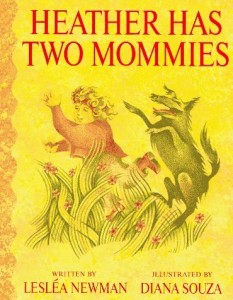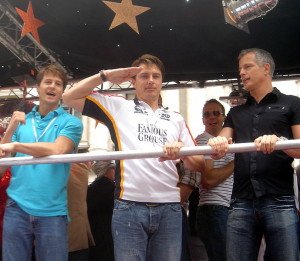Why are European institutions incapable of implementing values that honour fraternity, solidarity, and a dignified life, asks Donatella della Porta Professor of Sociology at the European University Institute, and Director of the Centre on Social Movement Studies (Cosmos), in this post which was first published on 8 July 2015 by Open Democracy.
Progressive social movements have long expressed support for ‘another Europe’. Their almost unanimous support for the Greek referendum’s ‘no’ vote against the Troika proposal for further austerity policies speaks volumes about the frustration of building a Europe from below. Indeed anti-austerity protests have stated that the evolution of the European institutions is in the opposite direction: more and more a Europe of the (financial) markets, in which democratically unaccountable institutions make decisions and then impose them, via blackmail and fear, to domestic governments and European citizens. Their diagnosis resonates with recent research on the European Union, which stresses how, from a democratic deficit, European institutions moved towards a crisis of political responsibility. There is a fundamental inability to implement values of fraternity, solidarity and a dignified life
- The Crisis was wrongly addressed by the EU as a crisis of fiscal profligacy in all peripheral countries
In reality, only Greece had high debt at the beginning of the crisis while in the other countries at the European periphery, debt resulted from the economic shocks. Various decisions by the Troika, composed of representatives of lending institutions including the EU, seem based on a biased (if not racist) vision of peripheral countries as overspending plus cheating.
- The EU choice of austerity policies reduced perspectives for growth
Broadly applied policies of internal devaluation, with the goal of reducing prices through cuts in wages and employment, have been counterproductive as not only did gains in competitiveness remain marginal but also nominal growth was depressed, with the effect of further pessimism spread by rating agencies. Similarly, labour market flexibility reduced incentives to increase productivity.
- The crisis dynamics at the periphery were fuelled by the unbalanced architecture of the Euro
Given large differences in the competitiveness of Eurozone countries, the Euro-system, while resting on unequal national economies, remained without an instrument to buffer these differences in case of shocks. Although the currency is one and the same, the public debt is national. Those very differences have increased inequalities, given the unwillingness of member states to countenance fiscal transfers in order to control asymmetric shocks and the economic heterogeneity of the countries involved in the currency union. During the crisis, the differential in competitiveness even increased as wage compression and labour flexibility reduced incentives to invest in productivity.
- The crisis has been increased by member states lacking the instruments to address economic difficulties.
They lacked the possibilities of devaluing national currencies as well as relying on their own lenders as a last resort. When, as a consequence of the restriction in liquidity, the demand diminished in peripheral countries, the trade imbalance should have been pursued through an increase in export, which is usually facilitated by exchange rate devaluation. This was not available to the EU periphery (as it had been instead for Iceland) as it went against German interests as an export country.
- The Eu has become more and more top down
While these policy choices have further pushed the EU in the direction of a ‘Europe of the market’, the EU also became more and more top down. The financial crisis fuelled a democratic crisis, which I have called a crisis of responsiveness. First and foremost, in countries in the Eurozone, the EU management of the crisis increased the democratic deficit at both domestic and European levels. This happened through various mechanisms.
- The crisis was addressed through the imposition of policy decision from electorally unaccountable institutions
In fact, while formally still in charge of policy making, national governments have lost the capacity to choose among alternative options and have been forced to implement unpopular austerity measures. The imposition of conditionality weakened national democracy and sovereignty. Just like the structural adjustment programmes imposed by international lenders in the global south, the economic adjustment programmes which Greece, Ireland, Portugal and Cyprus were asked to sign in exchange for loans, and Italy and Spain were pushed to adopt in order to escape sanctions, could be expected to mirror their disappointing results.
7. Deflationary policies are embedded in the eu architecture, which reduce policy choices at the domestic level
Deflationary policies resonated with a Eurozone system in which the Stability and Growth Pact has pushed towards fiscal rigour since the Maastricht Treaty. Deflationary policies indeed damaged the potential for growth in the GIIPS countries such that they not only could not devalue their currency, but also further depressed their internal markets through cuts in salaries and labour rights.
- the eu has constrained the democratic dialectic between government and opposition
Politically, the EU has imposed unchallenged support for its own policies on weak economies. It often forces – in some cases formally, through conditioned lending, in some cases informally, through various forms of pressure – parties in government and in the opposition to support those policies. This happened in Spain, where the PSOE in government had addressed the crisis through investments in 2008, but was pushed towards labour market liberalization and austerity. In Portugal, both government and opposition parties were explicitly asked to sign up to three austerity packages. In Ireland, after the electoral defeat of Fianna Fail (which dropped from 77 to 20 seats) the very same policies were imposed on the new governmental coalition formed by Fine Gael and Labour. In Greece, after the socialist victory of 2009, Pasok promises to increase social protection remained unfulfilled, as its government was substituted by a so-called technical government that, with the support of a broad coalition, had to implement the austerity policies demanded by both IMF and EU.
In Italy, with a later start to the sovereign debt crisis, the centre-left first supported the emergency austerity package of the centre-right government. It then supported (together with the centre-right) a new government, which implemented the EU goals for labour market liberalization that were listed in a supposedly confidential letter, sent by both the incoming and outgoing presidents of the ECB. While political outcomes varied to a certain extent in the first part of the crisis, the common outcome of EU intervention was in eliding policy differences between left and right, and therefore the democratic dynamics of government and opposition. Even if the crisis caused governmental defeats and early elections in Ireland, Portugal, Spain and Greece, policy imposed from above remained unchanged. In fact, grand coalitions and (self-defined) technocratic governments were often appointed.
- The EU has introduced policies aof liberalisation, increasing the power of markets over states an 9financial) capital over labout
Welfare state reform during the crisis can be seen as instances of liberalization, that is, as the spreading of a market logic in areas previously addressed through political decision-making. With the weakening of labour, in both liberal market and coordinated market capitalism, labour market deregulation and wage moderation seemed like the only options available to gain in competitiveness, given the fiscal constraints imposed by the Stability and Growth Pact.
- The EU has strengthened the domestic power of various growps and classes pushing for anti-labour politics
EU policies have weakened the unions, which have been manoeuvred – and let themselves be manoeuvred – in corporatist deals, from a position of weakness. When the unions could not be persuaded to accept austerity measures, the EU line has been to proceed against them. Social pacts (such as the one on pension reform in Spain in February 2011, or in Ireland, the ‘Croke Park’ agreement with public sector unions in 2010) were concessionary agreements, that further weakened unions such that, even if damages to their constituencies were sometimes limited, they got very limited concessions in terms of policy as well as commitment to collaboration in the future. When the unions disagreed with austerity measures, the pressure from the EU was to proceed unilaterally
- The EU reduced electoral accountability by moving power from parliaments to executive and independent authorities.
Closed, self-sustained and unchecked decision-makers have been empowered during the crisis. These include bureaucrats in the ECB. In this respect, the EU democratic deficit is increased by the unaccountability of those formal and informal EU institutions that de facto challenge democratic governments at the domestic level. The unaccountable ECB holds an increasing amount of autonomous power to decide whether to create money and under which conditions to distribute it, with the potential for manipulating market panic and citizens’ fears in order to impose policy.
- Fiscal authonomy and national sovereignty have been dramatically reduced via new EU instruments that impose fiscal probity
Recent changes in the management of the crisis have increased the democratic deficit, not only of the EU, but also of the member states, imposing pro-cyclical policies in a much more stringent way than with the previous Stability and Growth Pact (SGP). The EU institutions’ capacity to enforce unaccountable decisions has increased dramatically during the crisis.
At the EU level, increasing controls are imposed by the Six-Pack, the Fiscal Compact and the Two-Pack. Already in 1997, the SGP fuelled a process of policy coordination as the EU could impose corrective mechanisms in case of deviation from EMU prescription, with constraints especially on public expenditure. This is aggravated by the fact that the governance of the EMU is more and more devolved to economically oriented actors such as the DG ECFIN, the Council for Economic and Financial Affairs and the European Central Bank, all of which are oriented by a monetarist paradigm, calling for labour market de-regulation and cuts in pensions and health care.
The ineffectiveness of the SGP was attributed to its weak capacity for enforcement, but during the crisis new and more stringent instruments were developed. First, in December 2011, the Six-Pack increased the strength and the scope of surveillance as well as potential sanctions for all member states, and even more stringently on the Eurozone. Passed in 2012, the Fiscal Compact is even more binding for Euro-countries, as it requires that member states report on their national debt to the Commission and the Council. Finally, the Two-Pack, coming into force in May 2013, has further specified budgetary policy aims, creating higher enforcement and surveillance mechanisms, with the requirement that sovereign member states send their budget proposals for prior approval to the EU and the Eurogroup. All these instruments put unprecedented constraints on social expenditure.
These developments have not only affected social movements in times of austerity, but also risk remaining permanent challenges in the future. If the structural adjustment programs were limited in time, the turn towards EU institutions that are more and more free market oriented and less and less democratic has been structured within institutional changes that are meant to last. If until about 15 years ago, the EU presented a mix of opportunities and threats for social movements, nowadays and for the foreseeable future the EU institutions have become became unavoidable targets rather than potential allies. While at the beginning of the great recession, anti-austerity protests remained largely domestic, in the recent dramatic vicissitudes relating to the Greek crisis, and the EU role in it, what is becoming clear to progressive social movements in Europe seems to be the difficulty, but also the absolute necessity, to act beyond national borders.
Photo:Leonid Mamchenkov






Subscribe with…